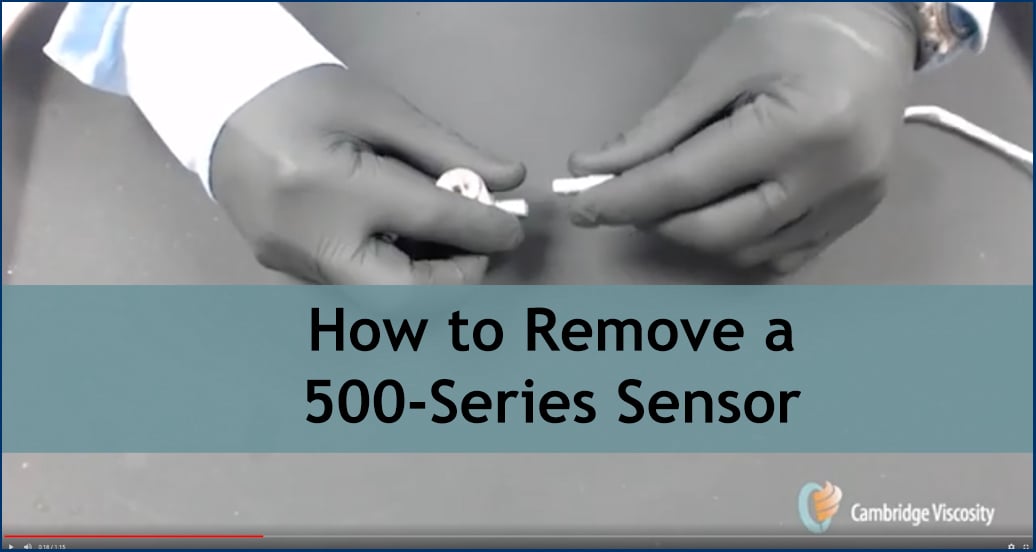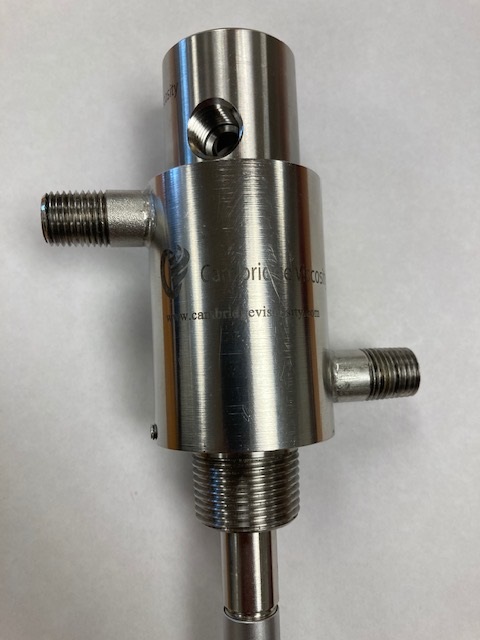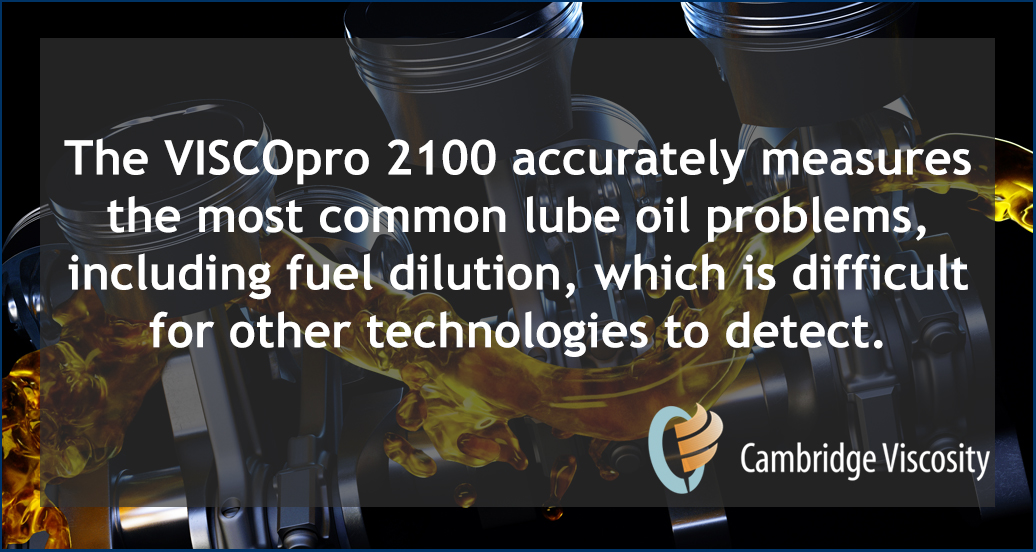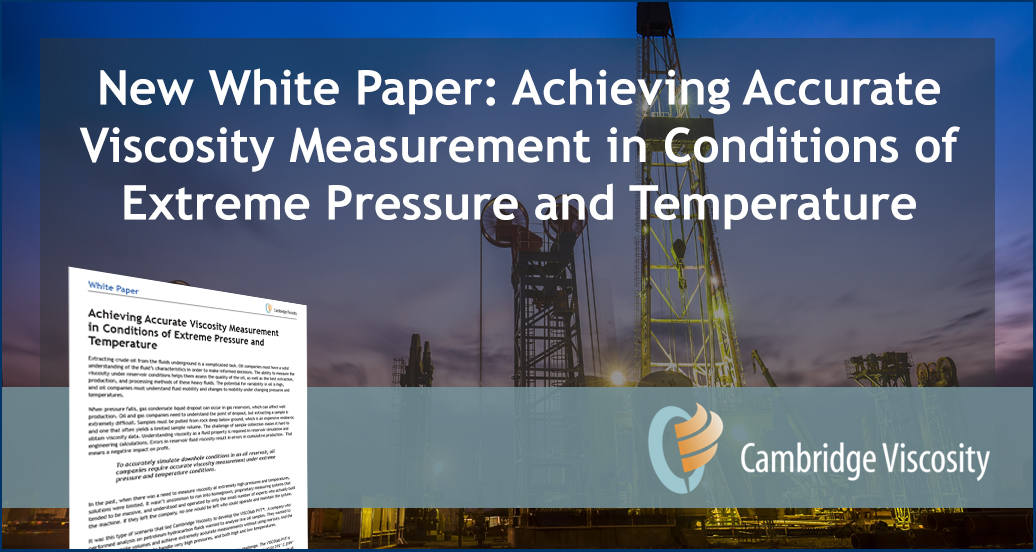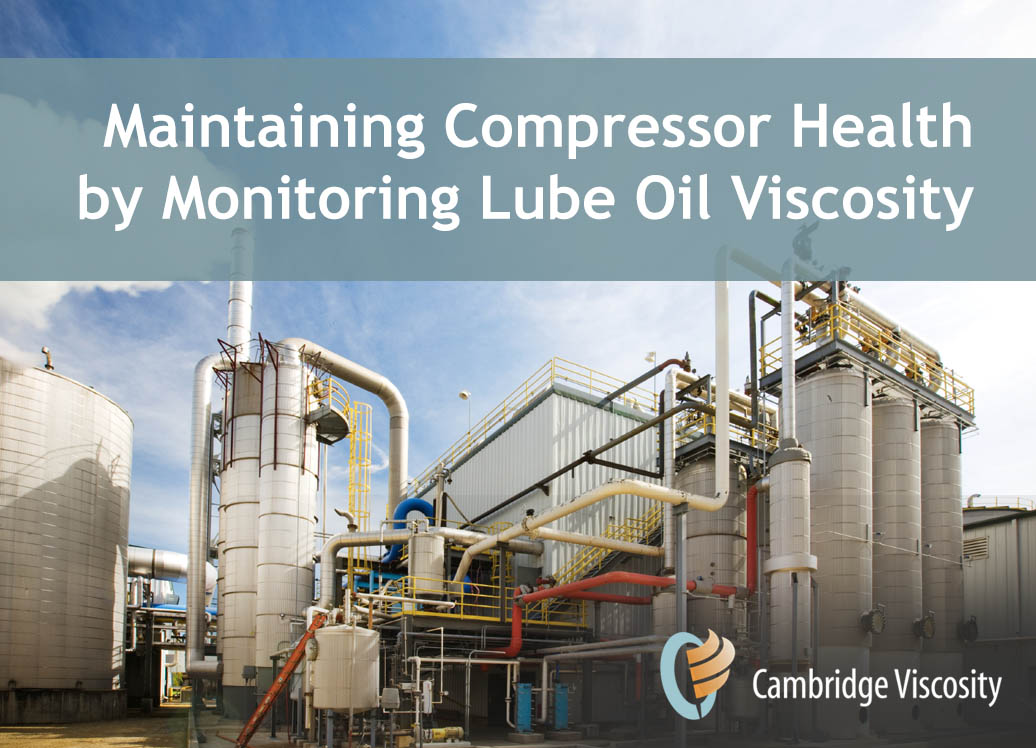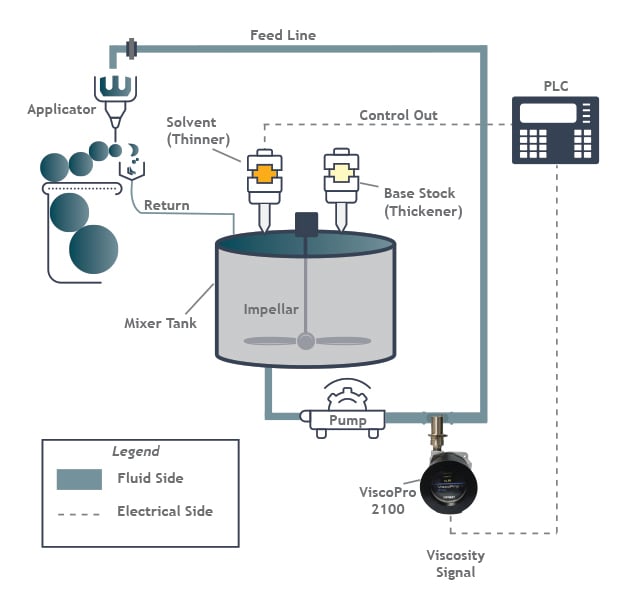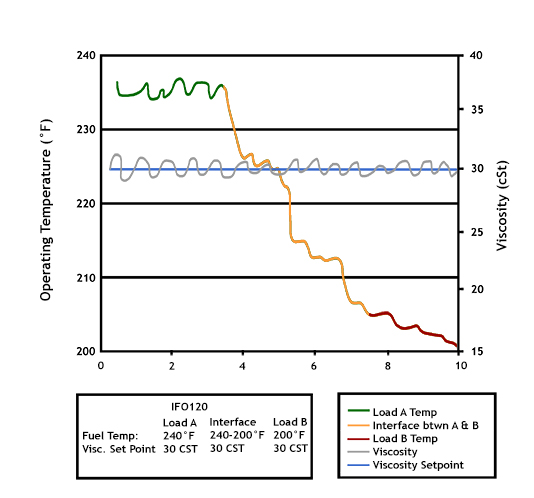Recently, a few of our team members created a video to help a customer with a minor issue they were having. We thought that if one customer might have the issue, another might, also, so we uploaded the video, How to Remove a Cambridge Viscosity 500 Series Viscometer Piston, in case it could help other customers.
How to Remove a Series 500 Piston
Jun 29, 2021 7:45:00 AM / by Admin posted in 571 sensor, viscosity control, viscosity management, lens viscosity, in-line viscometers, 500 series viscometer
An interview with CVI Rep Suzhou TAIEN about the Compressor Industry
Jun 17, 2021 12:12:25 PM / by Patrick Riley posted in viscosity measuring solution, viscosity control, gas compressor, viscosity management, compressor viscosity
Did you know we have a global representative network that supports Cambridge viscometers all over the world? We decided to reach out to a few of them to get their thoughts on the compressor industry. The first rep we talked to is Suzhou TAIEN, who is responsible for viscometer sales and support in China.
CVI’s 372 Sensor Ideal for High Pressures and Temperature Control
Jun 3, 2021 10:09:22 AM / by Patrick Riley posted in viscosity control, in-line viscometers, 372 sensor
VISCOpro Used in Research to Analyze Viscosity in a Rotary Compressor
Apr 29, 2021 8:31:44 AM / by Patrick Riley posted in 501 sensor, viscosity measuring solution, viscosity control, research, compressor viscosity
When compressor manufacturers design a new compressor model, part of the process includes determining the type of refrigerant and the accompanying lubricating oil, which is necessary to reduce friction on metal parts, reduce wear on the compressor, and extend the life of the system. The company must conduct extensive testing to ensure proper energy efficiency and functionality. The lubricant has a significant impact on the performance of the compressor. Over-lubrication can impact the compressor’s ability to cool properly, but too much refrigerant will lead to more wear and a shorter compressor lifecycle.
Configuring Your Viscometer When You Know Exactly What You Want
Apr 14, 2021 12:25:40 PM / by Patrick Riley posted in monitor viscosity, viscosity measuring solution, viscosity control, ViscoPro 2100
If there’s anything that we’ve learned in 30+ years of business, it’s that our customers are smart. Often, you’re the best in your field. You know your industry as well as you know the face looking back at you in the mirror.
Monitor the viscosity of lube oil to reduce failures in engines
Mar 16, 2021 9:43:04 AM / by Patrick Riley posted in lube oil viscosity, viscosity control, viscosity management, 301 sensor
When it comes to rotating equipment, it’s a question of when—not if—a failure will occur. Engine breakdowns, for example, are often caused when the bearings in rotating parts fail. What does this have to do with viscosity, you may be wondering. Faulty bearings can generally be traced to one of three issues: 1) Severe service conditions, 2) improper handling or installation, or 3) poor lubrication.
White Paper: Accurate Viscosity Measurement in Extreme Conditions
Mar 9, 2021 10:39:14 AM / by Patrick Riley posted in PVT, viscosity control, Exploration, high pressure viscometer, EOR
The need for accurate and reliable viscosity measurement in high pressures and temperatures spans many applications across multiple industries. Oil exploration, enhanced oil recovery, and bearing analysis are just a few. Cambridge Viscosity has a long history of meeting these challenges. The key is in the SPL-440 sensor, which is the heart of the VISCOlab PVT. Our new white paper touches on why viscosity measurement is so important when it comes to oil extraction.
Download the White Paper: Achieving Accurate Viscosity Measurement in Conditions of Extreme Pressure and Temperature
Oil condition monitoring for lube oil monitoring on screw compressors
Feb 17, 2021 11:55:02 AM / by Patrick Riley posted in viscosity control, viscosity management, compressor viscosity, in-line viscometers, ViscoPro 2100
Managing lubricant viscosity is essential to maintaining the health of a compressor in a process plant, because a single compressor failure can cost $10,000 a day or more in lost revenue. Considering it’s another $10,000 to rebuild a compressor, or more than $100,000 to replace a compressor, maintaining the health and performance of compressors is important.
When your lab measurements are different than the in-line measurements
Feb 3, 2021 12:39:04 PM / by Patrick Riley posted in viscosity measuring solution, viscosity control, viscosity management, in-line viscometers, ViscoPro 2100, viscometer
There is always some level of uncertainty in comparing on-line viscosity measurements with laboratory measurements. When it comes to viscosity analysis, a major reason for that uncertainty – and inconsistent measurements – is because the fluids are, in fact, under different conditions.
CVI's Viscometers Support the Manufacture of Safety Eyewear
Jan 26, 2021 12:35:09 PM / by Patrick Riley posted in viscosity control, eyewear viscosity, Coating, process viscometer
Safety eyewear has never been more important than right now. In an industry that was already growing at a rate of 4% CAGR, with a projection to reach $3B by 2025, the COVID pandemic created a massive surge in demand for safety eyewear in 2020.
Lessons Learned: Viscosity Control for Converters
Jan 20, 2021 10:08:35 AM / by Patrick Riley posted in viscosity control, coating viscosity, viscosity management, in-line viscometers, process viscometer
Almost two months ago, while those of us in the United States were enjoying our Thanksgiving holiday, our associates in Italy were holding a webinar on viscosity measurement in pressroom converters. This event inspired a series of material discussing the coating application, including last week’s blog highlighting factors that influence viscosity measurement in the pressroom converter application.
Viscosity Measurement Supports Uniform Coating for Wire Manufacturing
Jan 4, 2021 1:17:06 PM / by Patrick Riley posted in viscosity measuring solution, viscosity control, wire coating, coating viscosity, viscosity management, in-line viscometers, ViscoPro 2100
Spring and wire products are a substantial market – estimated to reach $468B by the end of 2020. Wire is widely used in manufactured goods, including electronics, automobiles, motors, transformers, and a wide array of other products. The coating on the wire is possibly the single most important variable in wire quality, and viscosity plays an important role in ensuring quality.
Ensuring Quality of Wire Coatings with Viscometry
Dec 16, 2020 9:28:49 AM / by Patrick Riley posted in viscosity control, viscosity management, Coating, in-line viscometers, ViscoPro 2100, process viscometer
Determining the Viscosity of Heavy Fuel Oils
Dec 8, 2020 3:44:17 PM / by Patrick Riley posted in viscosity measuring solution, viscosity control, heavy fuel oil viscosity, viscosity management, in-line viscometers
In shipping vessels, “bunker” refers to the fuel and lube oils that are stored on the ship and used for machinery operation. When the fuel or oil is intended for transfer to another ship for use in its machinery, the operation to transport the oil is called “bunkering.”
Optimize coating applications through tighter viscosity control
Dec 2, 2020 9:07:18 AM / by Patrick Riley posted in viscosity measuring solution, viscosity control, coating viscosity, viscosity management, Coating, ViscoPro 2100
When it comes to coatings, product quality can live or die by viscosity. A too-viscous mixture can result in bubbling and an inconsistent, bumpy, “orange-peel” texture. A solution that is not viscous enough can result in a coating that is too thin, drippy, or saggy. Plus, depending on the application, a coating that is too thin may not provide the necessary top-coat protection. In either case, a coating that has an off-spec viscosity in either direction can result in product rejection or product failure.

